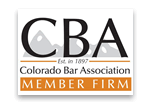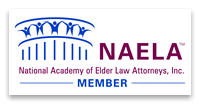Estate and Trust Administration
We offer estate and trust administration services to personal representatives, trustees, and beneficiaries. We can assist you with the personal and legal needs of managing a person’s final affairs or a trust. You have an important responsibility and legal duties if you are nominated as a personal representative or designated as a trustee.
If you are nominated as a personal representative, we assist you in the process of being appointed by the court. After you are appointed as personal representative, we assist you with collecting the decedent’s assets, paying debts and obligations, and distributing assets to the beneficiaries.
If you are designated as a trustee, we assist you with the administration of the trust pursuant to the terms of the trust agreement. Common trust administration issues are ensuring that the trustee makes proper trust distributions to the trust beneficiaries and maintaining accurate accounting records.
If you are an heir to an estate, or a beneficiary of an estate or trust, we assist you in the procurement of your proper share of the estate or trust, and ensure that the personal representative’s or trustee's actions are compliant with the estate plan or state law, including the preparation of all required accountings, the proper division and allocation of assets, and the maximization of assets of the estate or trust.
Estate Administration
When a person dies, the estate (i.e., the items the person owns a death such as real estate, personal property, investments, bank accounts, vehicles, etc.) must be distributed to the person’s heirs or beneficiaries. The process of managing the estate and distributing the estate is referred to as the probate or estate administration process.
Estate or probate administration involves filing the Will with the court or if there is no Will, proceeding pursuant to intestacy law (the law that governs estate administration when there is no Will). A personal representative is appointed and is responsible for carrying out the decedent’s wishes.
Probate is generally required when a person dies owning real estate in their name alone or if the person’s assets titled in the person’s name alone exceed $50,000.00. If no real estate is owned and the decedent’s assets total less than $50,000.00, a simplified procedure using a small estate affidavit can usually transfer the assets to the decedent’s heirs.
Trust Administration
A Trust is an agreement between three parties. The first party is the person who creates the trust document or agreement and is referred to as the settlor or grantor. The second party is the person or entity who administers or manages the trust pursuant to the terms of the trust agreement and is known as the trustee. The third party is the person or entity who benefits from the trust and is known as the beneficiary. A trust can be established in a Will (known as a testamentary trust) or established during a person’s life for the settlor’s own benefit (a common example is a revocable living trust) or for the benefit of another person (e.g., a Special Needs Trust).
The administration of a trust is a very important responsibility. Questions often arise with regard to balancing the trustee’s duty to the settlor who established the trust to ensure the trust is administered according to the settlor’s intent and with the trustee’s duty to administer the trust for the benefit of the named beneficiary. We assist private and professional trustees with the fiduciary duties, obligations and responsibilties.



